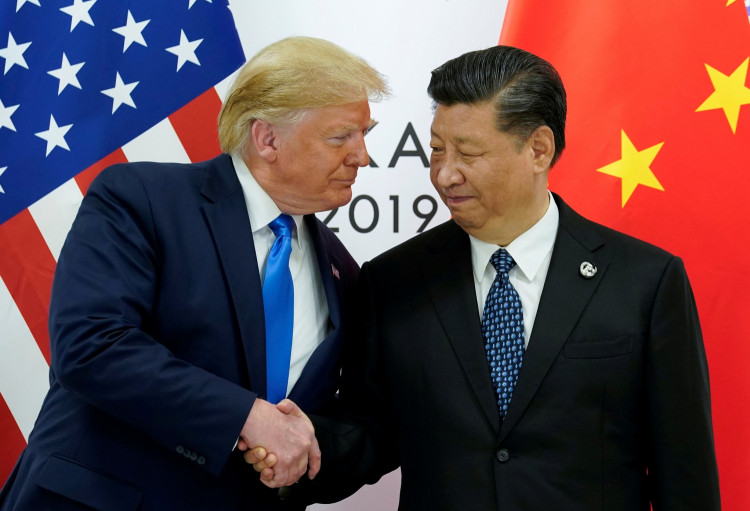President-elect Donald Trump announced Monday plans to impose sweeping new tariffs on Mexico, Canada, and China as part of his effort to combat illegal immigration and drug trafficking. Posting on his Truth Social platform, Trump pledged to implement a 25% tariff on all goods entering the United States from Mexico and Canada and a 10% tariff on Chinese imports. The measures, he stated, would be enacted through an executive order on his first day in office, January 20.
"On January 20th, as one of my many first Executive Orders, I will sign all necessary documents to charge Mexico and Canada a 25% Tariff on ALL products coming into the United States," Trump wrote. He added, "Thousands of people are pouring through Mexico and Canada, bringing Crime and Drugs at levels never seen before."
Trump also accused China of failing to take adequate steps to address the flow of fentanyl into the United States. "Until such time as they stop, we will be charging China an additional 10% Tariff, above any additional Tariffs, on all of their many products coming into the United States of America," he said.
The proposed tariffs could significantly disrupt trade relationships with America's top trading partners. Mexico, Canada, and China collectively account for the majority of U.S. imports, according to Census Bureau data. Economists warn that such measures could drive up costs for American consumers on goods ranging from cars to food to electronics.
Trump's proposals come as U.S.-Mexico border apprehensions remain near four-year lows, with 56,530 arrests in October, compared to 180,000 a year earlier. However, apprehensions at the northern border have risen sharply. U.S. Border Patrol reported 23,721 arrests at the Canadian border in the last fiscal year, more than double the previous year's total.
The announcement triggered immediate reactions from key trading partners. Canadian Prime Minister Justin Trudeau reportedly spoke with Trump shortly after the announcement. A senior Canadian official, speaking on condition of anonymity, described the conversation as focused on border security and trade.
"Canada places the highest priority on border security and the integrity of our shared border," Deputy Prime Minister Chrystia Freeland and Public Safety Minister Dominic Leblanc said in a joint statement. "Our relationship today is balanced and mutually beneficial, particularly for American workers."
Mexico's government has yet to issue a formal response. Historically, Mexican officials have opposed such tariff measures, cautioning that they could lead to retaliatory actions. In the past, Mexico has emphasized its role as a key trading partner and collaborator in addressing shared challenges such as drug trafficking.
Trump also criticized China's efforts to stem the flow of fentanyl, a synthetic opioid responsible for tens of thousands of overdose deaths annually in the U.S. "I have had many talks with China about the massive amounts of drugs, in particular Fentanyl, being sent into the United States - But to no avail," he wrote.
China's response was measured but firm. "No one will win a trade war or a tariff war," said Liu Pengyu, spokesperson for the Chinese Embassy in Washington. Liu called bilateral trade "mutually beneficial in nature" and highlighted ongoing counter-narcotics cooperation since a November 2023 meeting between Presidents Joe Biden and Xi Jinping.
Economic analysts predict that Trump's proposed tariffs could have far-reaching consequences. Andy Rothman, investment strategist at Matthews Asia, noted the complexity of the U.S.-China trade relationship. "China and the U.S. still have a really important commercial and economic relationship," he said on CNBC. Goldman Sachs analyst Kinger Lau suggested Beijing could respond to tariffs with measures such as fiscal stimulus or currency devaluation.
Domestically, Trump's plan could clash with his campaign promise to tackle inflation. Economists warn that increased import taxes might drive up prices for consumers, exacerbating inflationary pressures. Such outcomes could compel the Federal Reserve to maintain higher interest rates for longer.
Trump's Treasury Secretary nominee, Scott Bessent, has defended tariffs as a critical tool for achieving foreign policy objectives. "Tariffs are a useful tool for addressing issues such as illegal immigration, fentanyl trafficking, and trade imbalances," Bessent wrote in a Fox News op-ed last week.
During his first term, Trump used tariffs as a bargaining chip, often triggering retaliatory measures from trading partners. In 2018, Canada imposed billions in retaliatory tariffs on U.S. goods, including politically targeted products such as yogurt from Wisconsin, then-House Speaker Paul Ryan's home state.
The proposed tariffs could also test the durability of the United States-Mexico-Canada Agreement (USMCA), which replaced the North American Free Trade Agreement (NAFTA) in 2020. The deal, scheduled for review in 2026, includes provisions for national security exceptions that Trump could invoke.






